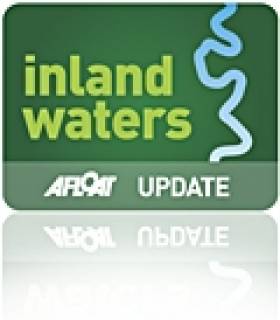Displaying items by tag: Athlone Lock
Waterways Ireland advises of a number of temporary closures and scheduled works across the inland waterways in the coming days.
On the Grand Canal, masters of vessels should note that there will be no boat passages permitted on the Nass Branch (NCB2) for six weeks from Monday 14 February to facilitate breast gate replacement and associated works.
On the Shannon Navigation, Athlone Lock will be closed to boat traffic from Wednesday 16 to Friday 18 February to allow for the relocation hydraulic and electrical services as part of recent flood relief works.
Further north, essential dredging works will see the closure of Portna Canal on the Lower Bann Navigation to boat traffic from Monday 14 to Monday 21 February.
And in Dublin, masters and users of the Royal Canal should note essential tree works taking place between the 12th Lock and Granard Bridge (Castleknock Road) from Monday 14 February.
These works are expected to last for 10 working days which may not be consecutive, weather and staff resources allowing. Vessel owners moored on the north band are asked to cooperate with the tree works contractor to access the bank area for tree removal.
While closure of the towpath is not foreseen, towpath users are asked to be mindful of the works ongoing.
Shannon Missing Navigation Mark at Athlone
#InlandWaterways - Waterways Ireland advises masters and owners that a green starboardhand navigation mark is reported missing just south of Athlone Lock on the eastern side of the Shannon Navigation opposite the old Athlone Canal entrance.
Masters should proceed with caution when navigating this section of the river.
Elsewhere on the Shannon, a triathlon swimming training course is now set out in Lough Key between Castle Island and the mainland to the west, in an area off the navigable channel.
This will be in place until the end of September and is marked by four yellow buoys. When swimmers are on the course they will be accompanied by a safety boat and will be wearing high visibility swim hats.
Training will take place Mondays, Wednesdays and Fridays from 7am till 8am and Tuesday and Thursday from 6pm till 8pm. Masters are requested to navigate at slow speed and with a low wash when passing the area.
Further information may be had from Donal Kennedy of Lough Key Triathlon Club at 086 109 2626 or [email protected].
Meanwhile, a swimming event will take place on Sunday 9 June from Shannon Harbour to Banagher Harbour.
Masters are requested to navigate at slow speed and with a low wash when passing the area during the event, which will take place between 1pm and 3.30pm.
For more details contact Jerry O’Meara of Shannonside Sub Aqua Club at 087 776 4252 or [email protected].
























































